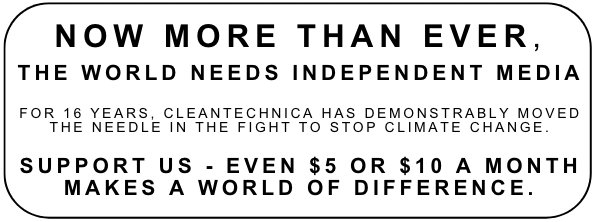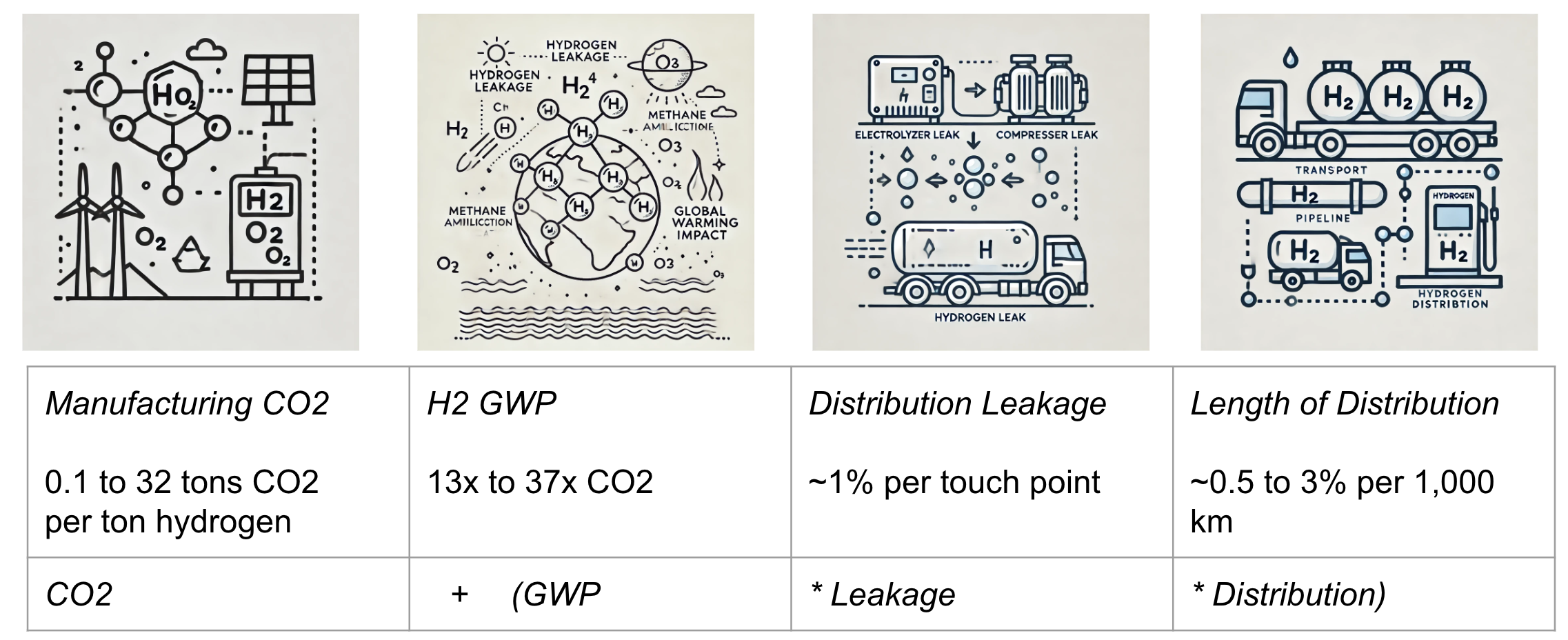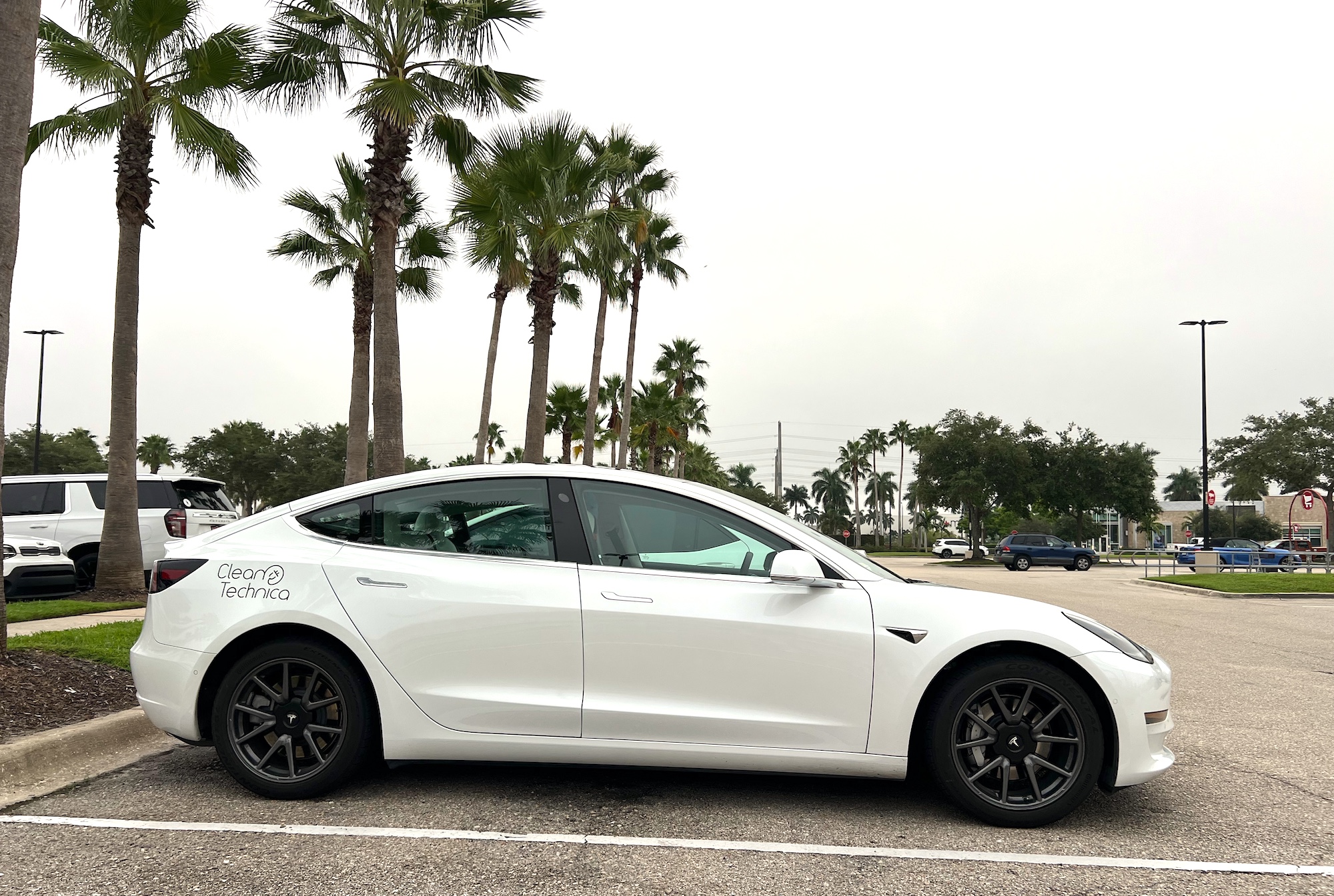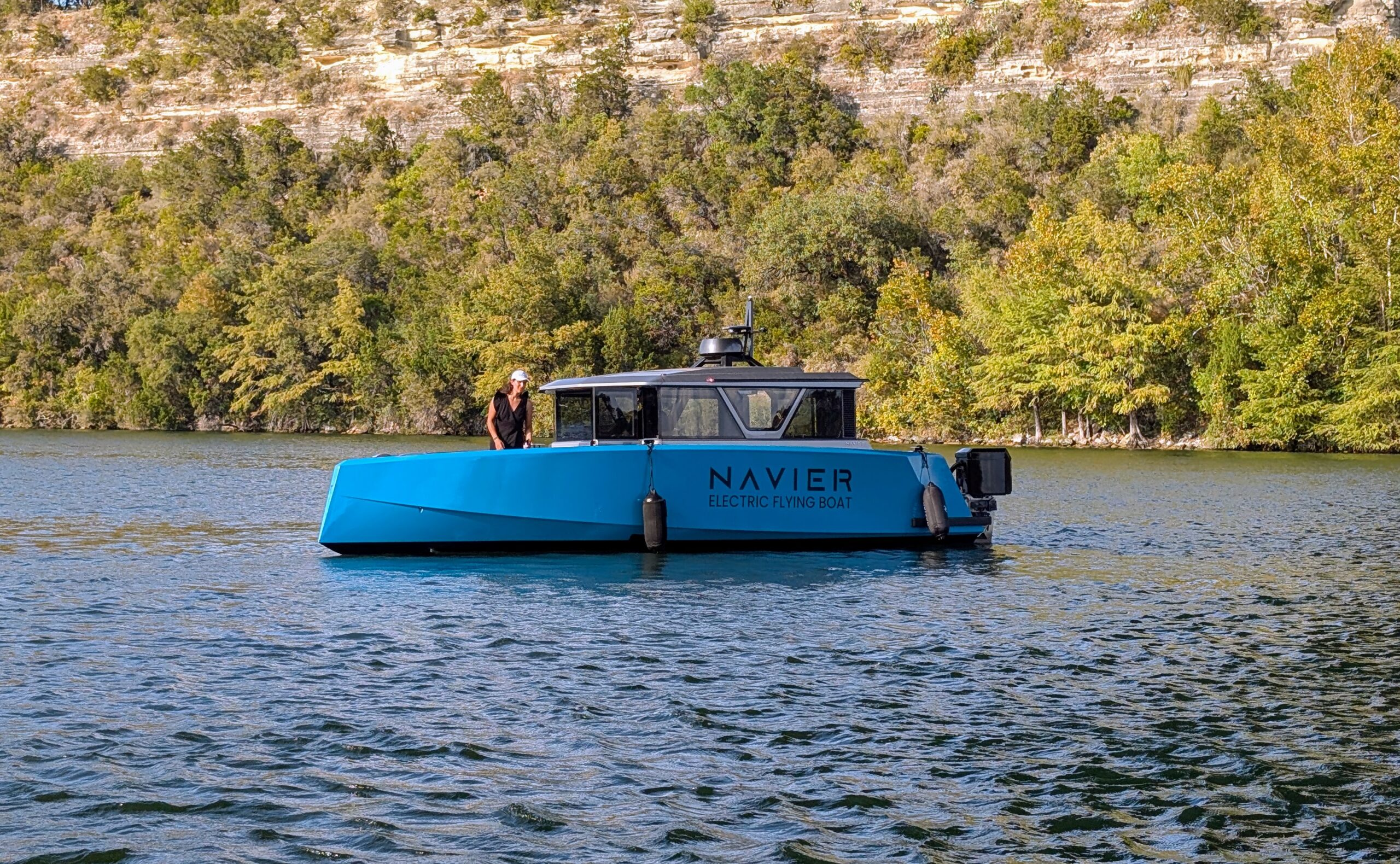
Sign up for daily news updates from CleanTechnica on email. Or follow us on Google News!
Recently I took a stroll through the implications of Canada’s anti-greenwashing improvements delivered through the truth in advertising provisions of Bill C-59. Originally, it merely caused all oil and gas firms and their lobbying and propaganda groups to magically disappear their entire social media presence and large parts of their websites. However, I pointed out that it clearly made claiming that hydrogen buses were zero emissions or even low emissions illegal and subject to fines of tens and hundreds of millions.

There’s no way, given the methodological requirements and peer-reviewed literature, that it wouldn’t pass muster in Canadian courts. Hydrogen for transportation is much higher carbon to manufacture in the best possible case than using electricity directly in batteries. Hydrogen is a fairly potent greenhouse gas, albeit indirectly by preventing methane from breaking down, with a global warming potential 13 to 37 times that of carbon dioxide. And hydrogen leaks, 1% or more per touch point in supply chains that can have eight or more touch points. Making it at transit garages just means making it in much less efficient, leakier, more failure-prone non-industrial scale electrolyzers, so that’s not a solution.
In the lowest emissions per kilometer case of all the various transit plans I studied, electrolyzing water at a Winnipeg transit garage with Manitoba’s very low carbon electricity, emissions were still 15 to 16 times that of battery-electric buses, and a significant percentage of diesel. That option was too expensive for city council, so they pivoted their plans to one which would produce roughly 3.2 times as many emissions well-to-wheel as diesel buses, something that’s not remotely a solution. In Ontario, emissions were likely in the range of 90% of diesel buses.
That’s why hydrogen buses break Canada’s greenwashing laws. They aren’t even low emissions, yet are labeled constantly as zero emissions. The global standard for emissions is well-to-wheel, not tank to wheel, and battery-electric is lower emissions tank-to-wheel as well, because batteries don’t leak greenhouse gases and hydrogen buses do.
Of course, people I engage with immediately asked about other jurisdictions, and whether there was any hope for finally putting a stake through the heart of the revenant energy carrier, stopping it from sucking the blood out of governmental subsidies and preventing real climate action. The news is mostly good.
The European Union has significantly enhanced its greenwashing laws to combat misleading environmental claims and promote transparency. Key updates include the Empowering Consumers for the Green Transition Directive and the proposed Green Claims Directive, which establish stricter requirements for substantiating environmental claims. Businesses must now provide clear, standardized, and verifiable evidence for any claims about environmental benefits, such as “carbon-neutral” or “eco-friendly.” The directives also introduce explicit prohibitions on vague or generic claims that lack substantiation.
Importantly and like Canada’s C-59, the updated legislation empowers non-governmental organizations and consumer advocacy groups to initiate legal action against offenders, leveraging collective redress mechanisms. These measures aim to hold companies accountable, protect consumers from deceptive practices, and foster trust in the transition to a sustainable economy.
Under the enhanced EU greenwashing laws, companies making unsubstantiated environmental claims could face fines of up to 4% of their annual global revenue, ensuring penalties are proportionate to the scale of the violation.
Shell has to be very careful of any claims it makes as that could result in about US$13 billion in fines, and it is because the oil and gas majors in Europe figured out the implications of greenwashing legislation immediately, while the transportation sector hasn’t. As a result, Shell says things like “Hydrogen-fuelled trucks can reduce carbon emissions for the heavy-duty mobility sector as their tailpipe emission is water vapour.” Not will, not zero, not well-to-wheel, but they are very careful to bound their claims. It’s still nonsense, as well-to-wheel is the requirement, but might stand up in court, depending on what else they say in other places.
Of course, Shell is completely silent on hydrogen’s global warming potential and leakage, so they aren’t remotely out of the water due to the requirement for claims being aligned with leading methodologies, not tightly bounded claims that leave big implications.
BMW, which claims its IX5 Hydrogen has “CO2 emissions, combined WLTP in g/km: 0,” could be in for around $6 billion in fines. Iberdrola, which claims “It does not emit polluting gases, neither during combustion nor during production” is at risk of couple of billion in fines. Solaris claims “The Solaris Urbino 12 hydrogen is a zero-emission city bus powered by a hydrogen cell” could be subject to $33 million in fines. Air Products, which claims “When used in the heavy-duty transportation and heavy industrial sectors of our economy, hydrogen energy can help reduce global emissions by 20%” could see $500 million in fines.
Toyota, whose European website promises “a wide range of zero emissions mobility solutions to appeal our customer diverse needs,” could see $9.4 billion in fines. Thyssenkrupp, which claims “Our society and our industry need a sustainable system to replace fossil fuels with their long-term CO2 emissions. This is the only way we can stop climate change. The solution? Hydrogen,” could see $1.4 billion. TotalEnergies, which claims incorrectly that “Used as a vehicle fuel, hydrogen has a minimal environmental footprint,” could face $9 billion in fines.
Of course, just as the Canadian government incorrectly identifies hydrogen as a zero emissions transit fuel based on a clearly incorrect methodology, and hence is open to being hoist on Bill C-59, Europe is not guilt-free in this greenwashing. As one commenter on LinkedIn pointed out, “I’m skeptical that it would apply in this case, given that H2 and derivatives are considered as options in RED II and AFIR – where build-up of its fueling infrastructure along main “TEN-T” transit corridors across the EU is even mandated.”
However, the European Union’s enhanced greenwashing legislation empowers non-governmental organizations (NGOs) to take legal action against both private entities and public authorities, including governments and EU institutions, over misleading environmental claims. This capacity stems from the Aarhus Convention, which grants NGOs the right to challenge acts or omissions that violate environmental laws. Recent cases, such as Greenpeace’s lawsuit against the European Commission for classifying fossil gas and nuclear energy as sustainable investments, highlight this capability. Additionally, the EU’s Directive 2024/825 strengthens this legal framework by setting stricter standards for environmental claims and enabling NGOs to hold public authorities accountable for greenwashing.
If I were an NGO in Europe that was outraged at the hydrogen greenwashing going on and the forcing of high-emissions hydrogen down European’s throats at great taxpayer expense, I’d be seriously considering leveraging the greenwashing laws to take Brussels, RED II, and AFIR to court. There is no such thing as low-emissions hydrogen well-to-wheel, wind-turbine-to-wheel, or solar-farm-to-wheel after all, and full lifecycle is the only standard that will stand up in court.
On to Australia. Its greenwashing laws, enforced under the Australian Consumer Law, aim to prevent misleading or deceptive environmental claims by businesses. Overseen by the Australian Competition and Consumer Commission (ACCC) and the Australian Securities and Investments Commission (ASIC), these laws require companies to ensure that any sustainability or environmental claims are accurate, substantiated, and not likely to mislead consumers. Recent enforcement actions have targeted false claims such as “100% eco-friendly” or “carbon-neutral” without credible evidence.
Companies found in breach can face significant penalties, including fines of up to A$50 million, three times the financial benefit gained, or 30% of adjusted turnover for corporate violations. The ACCC and ASIC have been increasingly active in prosecuting greenwashing cases, reflecting a broader push to hold companies accountable for their environmental representations and protect consumers from deceptive marketing practices.
Assuming 50% of annual revenue is adjusted turnover, after a few taxes and other similar things are removed, the following firms should be questioning their marketing. Toyota, which ignores the global well-to-wheel standard and misleadingly claims “The only tailpipe emissions produced by a hydrogen fuel cell is water vapour,” could see US$39 billion in fines, although it hasn’t been getting many benefits, so would likely be forced to tell the court that it has made no money from hydrogen globally, never mind in Australia, so shouldn’t be fined. That would be a fun.
Fortescue, which has been slowly backing away from green hydrogen to much more sensible solutions, still makes claims like “Green hydrogen is produced through the electrolysis of water using renewable energy like solar, wind, hydropower or geothermal energy. This means zero carbon dioxide emissions,” and so could be subject to $2.5 billion in fines. Engie, which says that its “plan is to operate across the entire value chain of renewable hydrogen, from carbon-free power generation to the three key end uses: mobility, industry and energy storage,” could see $12.4 billion in fines.
Santos, the APA Group, Linde subsidiary BOC, and more are all dangling in the wind at present with their greenwashing claims about hydrogen.
Then there are fossil fuel propaganda organizations like black coal front group Low Emission Technology Australia (LETA), which says things like “Clean hydrogen – produced with little or no carbon emissions – will be a major player alongside renewable energy in the move to a low-emissions economy,” based on carbon capture related to blue hydrogen, which is even more laughably high emissions than green hydrogen. It was funded to the tune of $700 million a few years ago, so it could stand some good fines for its inaccurate claims, and not just about hydrogen.
Remarkably the right-wing fossil fuel fluffing organization the Institute of Public Affairs doesn’t make any false claims about hydrogen’s low emissions, instead just saying a lot of things about the marvels of unabated fossil fuels, but that’s a different problem.
Even notionally positive groups in Australia get in on the act. Australia’s Renewable Energy Association (ARENA), makes the false claim that “When it is produced using renewable energy or processes, hydrogen is an emissions free fuel and becomes a way of storing renewable energy for use when it is needed.”, and as such could be subject to fines, and as it had an AU$544 million budget in 2023, that could be beefy as well, potentially in the $50 million range.
Of course, a key weakness of current Australian greenwashing regulations is that only the ACCC can act. Everyone else can only make complaints to the ACCC, which I encourage everyone to do based on the evidence presented in my Canadian article which lays out all of the evidence, including the only global methodology that is accepted and acceptable, the global warming potential of hydrogen and the degree to which it leaks..
On to the USA, which enforces greenwashing laws through the Federal Trade Commission (FTC), which regulates truth-in-advertising to ensure environmental claims are accurate and substantiated. The FTC’s Green Guides provide detailed standards for marketers, requiring claims such as “eco-friendly” or “carbon-neutral” to be clear, specific, and backed by scientific evidence. Violations can result in fines of up to $50,120 per infraction, as well as additional penalties, such as cease-and-desist orders, mandatory corrective advertising, and restitution to consumers. Recent enforcement actions include fines against companies for misleading recycling claims and deceptive carbon offset programs.
If large groups of consumers are impacted, the $50k per infraction can mount into the millions. Of course, only the FTC can start actions and President-elect Donald Trump has named Andrew Ferguson as the next chair of the Federal Trade Commission (FTC). Known for his critiques of aggressive antitrust enforcement, Ferguson has pledged to end what he calls the “war on mergers” and focus on addressing perceived censorship by tech companies. His appointment, along with Trump’s nomination of Mark Meador to fill a commissioner vacancy, is expected to realign the FTC’s regulatory stance toward a more pro-business and deregulatory agenda, potentially reshaping policies on mergers, competition, and digital markets.
Yeah, no likelihood of greenwashing actions in the USA for the next several years. This is a place where you would expect California to be leading the country, and it kind of is with the Voluntary Carbon Market Disclosures Act, which basically requires full disclosure if any carbon neutrality claims are based on buying offsets. Not really going to help.
With the focus on “freedom” of speech in the United States with the incoming Administration and its core supporters, it’s going to be deeply unlikely that the “freedom” of high-emissions corporations to tell complete and utter porkies to all and sundry will be curtailed in any way.
And so the west, as always these days, is full of countries and regions trying to do the right thing, and the United States as well. Given the size of the fines permissible and the increased ability for NGOs in at least Canada and Europe to bring action directly, I would hope that some serious money would be flowing into governmental coffers over the coming years. A lot of it should be coming at the expense of non-solutions like hydrogen.

Chip in a few dollars a month to help support independent cleantech coverage that helps to accelerate the cleantech revolution!
Have a tip for CleanTechnica? Want to advertise? Want to suggest a guest for our CleanTech Talk podcast? Contact us here.
Sign up for our daily newsletter for 15 new cleantech stories a day. Or sign up for our weekly one if daily is too frequent.
CleanTechnica uses affiliate links. See our policy here.
CleanTechnica’s Comment Policy




